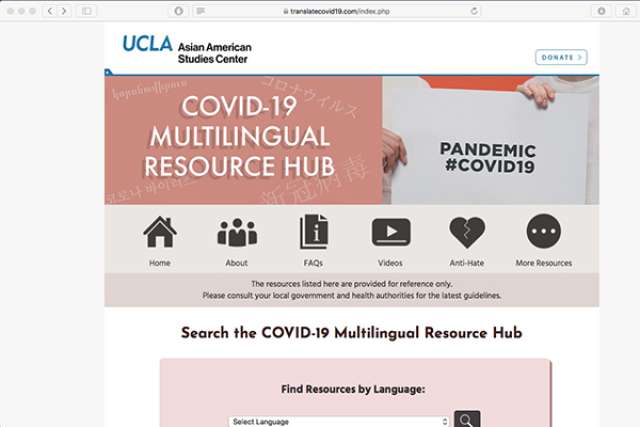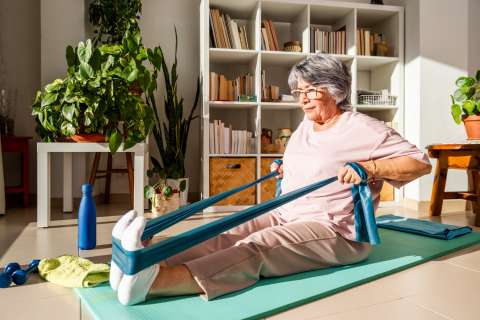It's abundantly clear that the COVID-19 pandemic has not hit all people equally, and part of that disparity is informational. Many communities have an increased vulnerability because of a lack access to official news, public health information and safety recommendations in a language other than English.
To help remedy that, faculty from the UCLA Fielding School of Public Health and the Asian American Studies Center quickly came together recently to launch TranslateCovid.org. This new website presents health and safety recommendations and other information in more than 40 languages, including Spanish, Chinese, Korean, Armenian, Japanese and Vietnamese.
"Many non-English speakers lack credible information about the novel coronavirus and how to manage the risks surrounding it," said Karen Umemoto, holder of the Helen and Morgan Chu Chair and Director of the Asian American Studies Center. "And Los Angeles is home to a critical mass of many non–English-speaking communities, including Asian and Pacific Islander."
TranslateCovid.org offers information on staying safe, basic scientific facts about the virus and even materials to help children better understand what's going on. Users can filter by languages, which also include Navajo, Arabic, Farsi and Zapoteco among others. For people who are hearing-impaired, there are videos presented using American Sign Language.
Faculty and staff are now working with colleagues at the Los Angeles County Department of Public Health, as well as community-based organizations that serve non–English-speaking immigrant groups, to actively disseminate this multilingual resource hub.
These outreach efforts encompass the five most linguistically isolated groups in L.A. County (Latino, Chinese, Korean, Armenian and Vietnamese).
"We know from past experiences that in a situation like a pandemic, groups that do not have access to mainstream media are often overlooked," said May Wang, professor of community health sciences in the Fielding School. Wang said the partnership between the Fielding School and Asian American Studies Center was a wonderful example of how much more we can get done when cross-campus units work together.
Umemoto said they'll also work to gather more materials in Hindi, Burmese, Samoan and Tongan, as there are large populations that speak these languages in Southern California.
"We would also like to reach out to other, smaller Asian groups, such as the Laotians and Cambodians, and are seeking funding for those additional activities," Wang said. "We expect that needs will change and evolve as we recover from this pandemic and are hoping to find the resources to continue to support underserved immigrant communities in the coming years."
The team launched a UCLA Spark fundraiser to help get the project off the ground and will help it expand.
Creating the website was also a critical means by which the Asian American Studies Center could keep nearly a dozen student workers employed for spring quarter. For the past eight weeks, they have been working with staff on gathering resources, vetting the resources for accuracy, building the website, designing a user-friendly interface, testing its functionality, editing the entries and adding additional features, such as an anti-hate page for reporting hate incidents related to COVID-19.
"We really wanted to make sure that students were able to continue to working," Umemoto said. "Many students rely on this income to support themselves and, for some affected by the pandemic, their families."
Another goal is to eventually create printable marketing materials that can be placed in high-traffic areas of vulnerable neighborhoods, potentially with slogans and information that will help prevent the spread of COVID-19 in highly affected communities.



